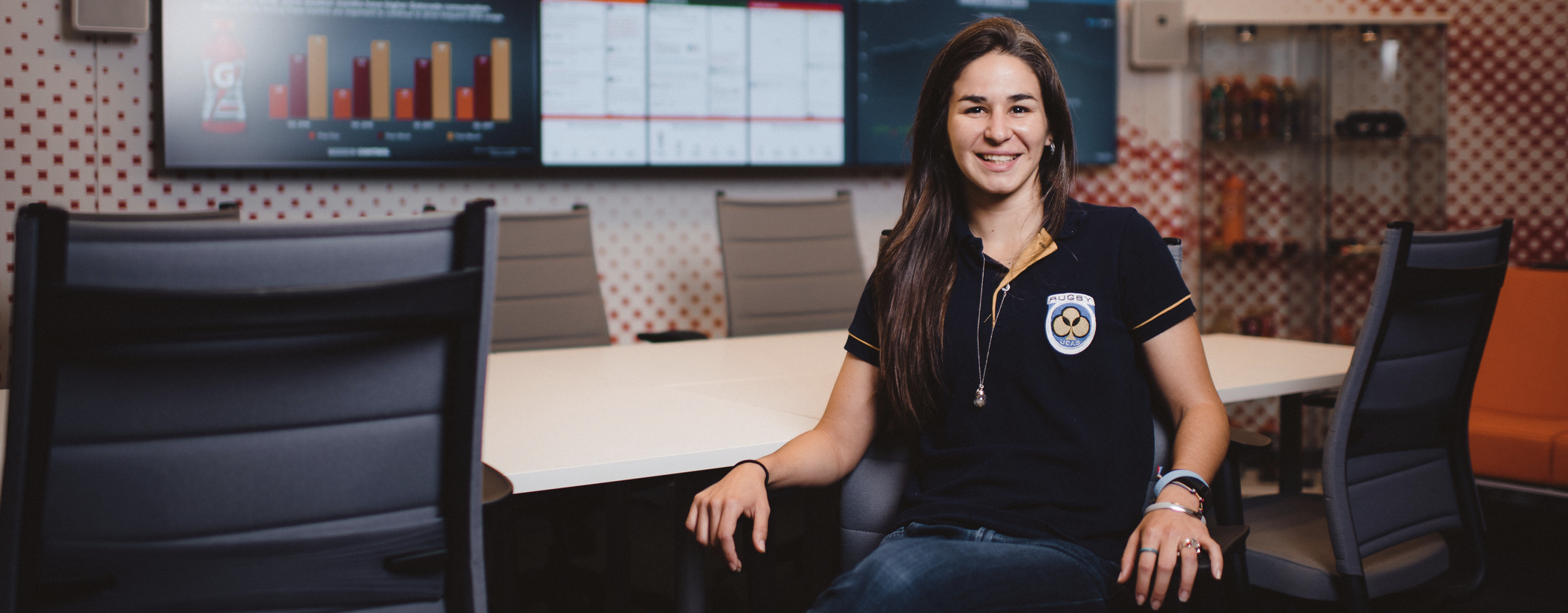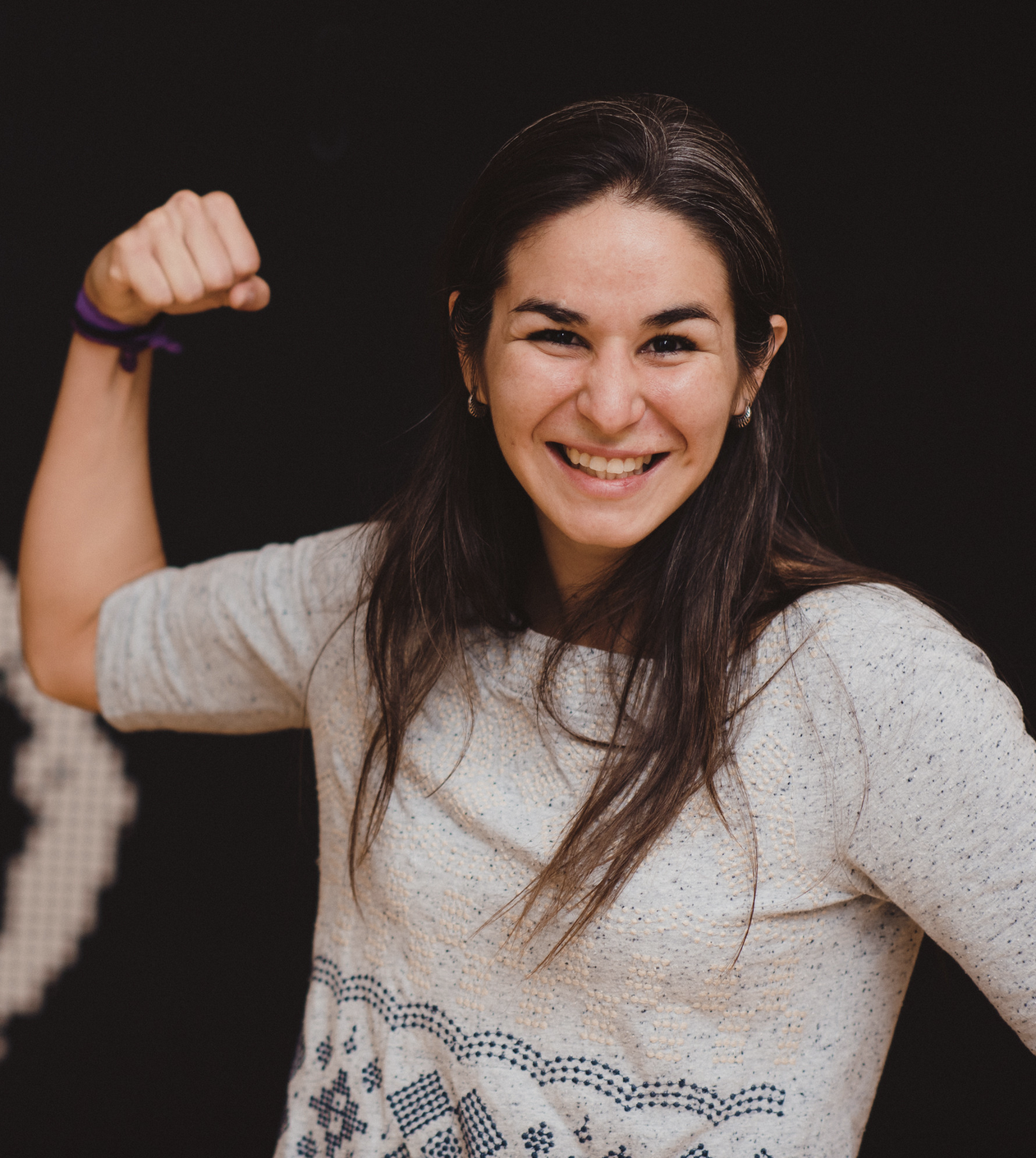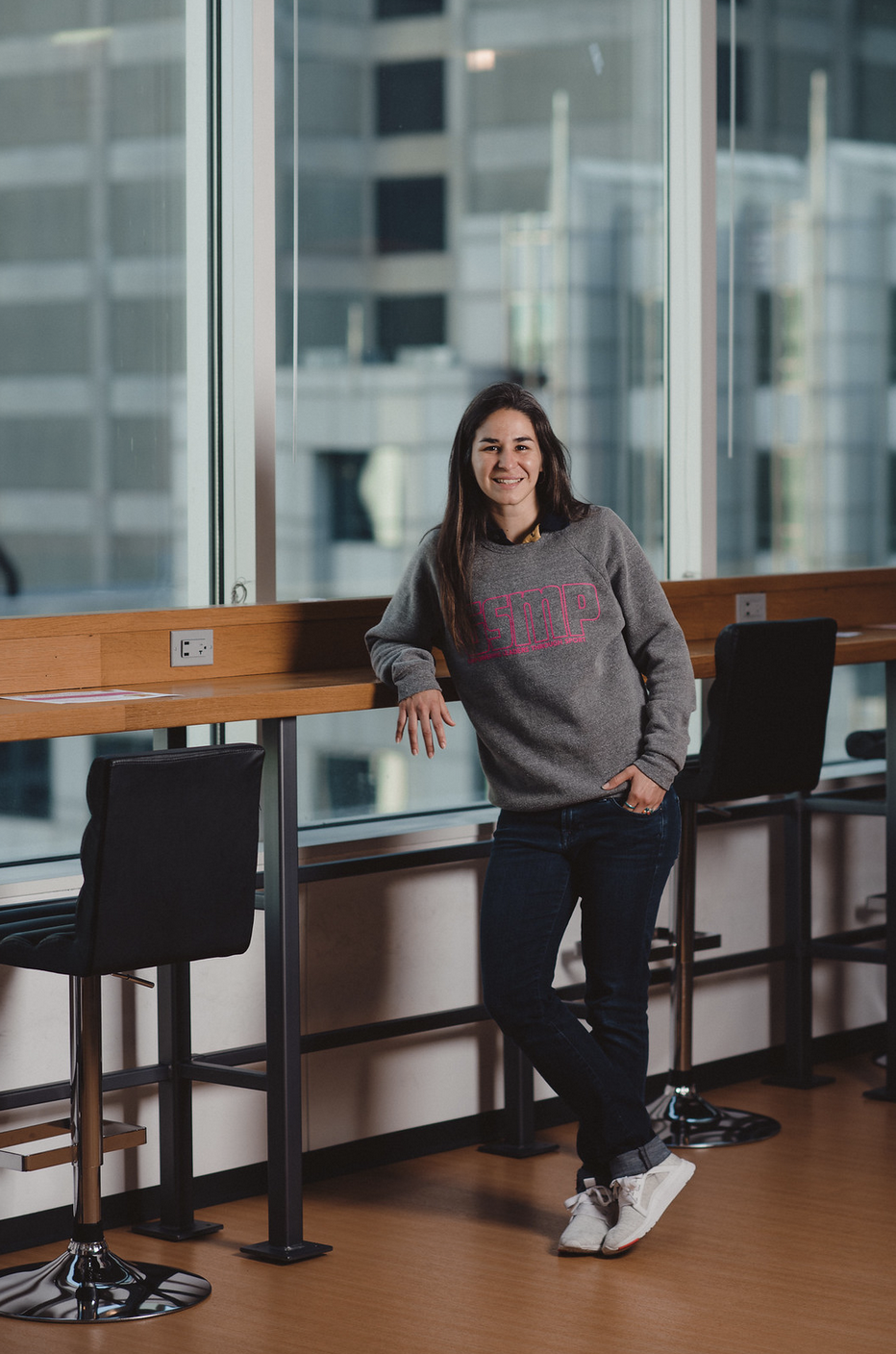
As a little girl growing up in Venezuela, Claudia Contreras spent weekends at the park with her dad, brother, and a ball. The sports landscape was traditionally dominated by men, but she ran, swam, climbed, and played volleyball and basketball. “The stereotype is,” she says, “that boys are supposed to be stronger and faster—that sports are for them—but that wasn’t the case in my family.”
While working toward her bachelor’s degree in sports psychology at Andrés Bello Catholic University, Claudia fell in love with the game of rugby. She felt a strong sense of solidarity and team spirit. She appreciated the passion of the leaders, the effort it requires to succeed, and the discipline needed to play well as a team. “Rugby teaches you about tolerance and respect for your opponent and the referee—that’s what makes a community.” Claudia had found her sport, and by 2012, she was leading the Venezuelan national team to strong showings at the 2013 Bolivarian Games, 2014 Central American and Caribbean Games, and 2016 South American Women’s Sevens Championship. In 2016, as captain, she took her team to the Women’s Rugby Olympic Repechage in Dublin, a tough play-off tournament and a highlight for women’s rugby in her country.
Promoting women’s rugby in Venezuela has had its challenges, however, and Claudia senses that stereotypes haven’t changed much since she was a child. “In Venezuela, people think rugby is for men, and ballet dancing is for women,” she says. “I had an Argentine coach on the national team—and you know Argentina is one of the best in the world—and he confessed to me that he didn’t think rugby was for women.” As shocking as it was to hear this from someone so deeply involved in women’s rugby, Claudia was familiar with the thinking. She would have to fight it every step of the way, the battle being made more difficult by the depth of Venezuela’s social and economic problems.

Seeing the desperate need and believing in the power of sport to include and empower, Claudia got together with like-minded colleagues and friends, psychologists, anthropologists and sociologists to start an NGO that could begin to address some of these systemic issues. In 2013 they founded Deporte para el Desarrollo (Sport for Development), and its mission was to raise up youth and coaches in some of Venezuela’s most disadvantaged communities. By 2020, Deporte para el Desarrollo had trained more than 1,000 coaches throughout Venezuela, impacting tens of thousands of youth and children. “Sport is a great space for children to learn because they want to be there,” she says. “We create a methodology for coaches to teach social skills, because we know not every child is going to be a high-performance athlete, but every child needs to learn to be a good citizen. We’re developing human beings.”
In 2017, Claudia was invited to participate in the Global Sports Mentoring Program (GSMP). She was paired with Katie Montiel, the Director of Public Relations for Gatorade in Chicago, who mentored her on marketing, public relations, fundraising, and partnership development. Katie motivated Claudia to think through what she wanted to accomplish, helped her to organize and present her ideas to others, and introduced her to a variety of perspectives while Claudia finished building her action plan. Overall, this incredibly enriching opportunity bolstered Claudia’s confidence and opened her mind to how much more could be done.
Her time away from home was not easy, as it coincided with a socioeconomic and political crisis in Venezuela, and the weight of being away was almost too much to bear. So Claudia concentrated on dreaming of a better future for Venezuelan girls through rugby. She began to find power and comfort in her new support network, drawing strength and inspiration from the fact that so many other women around the world were working toward the same goals.

In 2019, Deporte para el Desarrollo won the Peace and Sports “April 6 Initiative of the Year,” which recognizes organizations who have used sports as a tool for the development of peace. This was a big moment for Deporte para el Desarrollo. Although it was competing with bigger, more established institutions, the organization was effecting change, the platform had gained attention, and the recognition reaffirmed Claudia’s conviction that sports could help change society. She felt that she was finally able to bring some good news to Venezuela, and that her rugby project was adding value and visibility to her country. She also felt the encouragement and support of the entire GSMP community as she and fellow GSMP alumna, Carole Ponchon, headed to Monaco to accept the award.
In 2020, Claudia made the difficult decision to leave Venezuela, a country struggling with intense political and economic unrest. Fitting her life into two suitcases to leave her home was heartbreaking, and at times she felt gripped by uncertainty. Still, she was determined to find new opportunities, grow professionally, and continue fighting to make her dreams a reality. Combining her education in psychology, her experience in sport, and her time at the GSMP, she began working with the Salvadoran Women’s national team as a sports psychologist, also helping with the planning, training and development of rugby in El Salvador.
Claudia has high hopes for what sport can bring to her country and the world. She has seen firsthand the power it has to heal and bring peace, and she intends to keep fighting for justice, to build consensus and foster coexistence, and to create access for children and adolescents to practice physical activity in a safe space. Wherever she is, she knows she has the support of other GSMP delegates—this gives her the strength she needs and reminds her that she does not walk alone on this path. “Women have an important role in the future of the world,” she says. “We must empower them.”